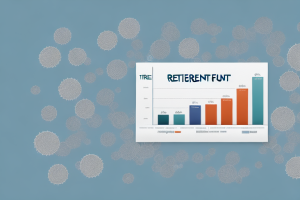Retirement is often seen as a well-deserved break from the working world, a time to relax and enjoy the fruits of years of hard work. But for many retirees, the desire to stay active and engaged remains strong, and finding a low-stress job can be the perfect solution. In this article, we will explore the benefits of low-stress jobs for retirees in the UK, discuss various career opportunities, and delve into the financial implications and work-life balance considerations. Whether you’re looking to transition into a new field or continue working in your current industry, we’ve got you covered.
The Benefits of Low Stress Jobs for Retirees in the UK
One of the key advantages of pursuing a low-stress job after retirement is the opportunity to maintain a sense of purpose and fulfillment. Work provides structure, social interaction, and personal satisfaction. Low-stress jobs allow retirees to continue contributing their skills and expertise without the pressures and demands commonly associated with full-time employment.
Another benefit is the ability to strike a balance between work and leisure. With a low-stress job, retirees can enjoy flexible hours, part-time schedules, or even freelance opportunities. This allows them to have more time for hobbies, travel, and spending quality time with loved ones. It’s a chance to enjoy the best of both worlds – the satisfaction of work and the freedom of retirement.
Exploring Career Opportunities for Retirees in the UK
The UK offers a wide range of low-stress job opportunities for retirees. Whether you’re interested in pursuing a passion project, sharing your knowledge as a consultant, or working part-time in a specific industry, there are options to suit various interests and skill sets.
For those with a penchant for creativity, freelance writing, photography, or artistic endeavors can provide a fulfilling outlet. The rise of the gig economy has opened up numerous possibilities for part-time or project-based work in fields such as graphic design, web development, or marketing.
If you’re looking to continue making a difference in your local community, consider volunteering or working in the nonprofit sector. Organizations focused on social welfare, education, or environmental conservation are always in need of experienced individuals who can lend their expertise and contribute to their causes.
Finding Fulfillment in Low Stress Jobs After Retirement
When considering a low-stress job after retirement, it’s important to choose something that aligns with your interests and values. Finding fulfillment in your work can greatly enhance your overall quality of life. Reflect on your passions, hobbies, and skills to identify potential areas of employment that will bring you joy.
Additionally, consider the impact and purpose of your work. Many retirees find immense satisfaction in jobs that allow them to contribute to society or make a positive difference in the lives of others. This can be through teaching, mentoring, or working in roles that support the well-being of individuals or communities.
Furthermore, look for opportunities that offer personal growth and learning. Continuing to expand your knowledge or develop new skills can be incredibly rewarding and keep your mind sharp during retirement. Consider enrolling in courses, attending workshops, or pursuing certifications in areas that interest you.
The Top Low Stress Jobs for Retirees in the UK
When it comes to low-stress jobs for retirees in the UK, the options are plentiful. Here are some of the top choices:
- Administrative Assistant: This position offers office-based work with flexible hours and minimal stress.
- Tutor or Teacher: Sharing your knowledge and expertise with others can be highly rewarding and allows for a flexible schedule.
- Customer Service Representative: Many companies offer remote or part-time customer service positions, which can be done from the comfort of your own home.
- Tour Guide: If you enjoy meeting new people and have a good knowledge of your local area, becoming a tour guide can provide a fun and engaging way to earn income.
- Caregiver: Working in caregiving roles, such as providing companionship for the elderly or assisting individuals with disabilities, gives retirees the chance to make a meaningful impact.
How to Transition into a Low Stress Job after Retirement in the UK
Transitioning into a low-stress job after retirement requires careful planning and consideration. Here are some steps to help you make a smooth transition:
- Evaluate your skills and interests: Reflect on what you enjoy doing and the skills you possess. This will help you identify the type of work that would be most fulfilling for you.
- Explore job market trends: Research the job market to understand current demands and opportunities. This will give you insights into potential career paths and industries that align with your interests.
- Update your resume: Tailor your resume to highlight relevant skills and experiences for your desired low-stress job. Emphasize transferable skills and any certifications or training you have acquired.
- Network: Leverage your existing professional and personal networks to explore potential job opportunities. Attend industry events, join online communities, and make connections with individuals who can provide insights and recommendations.
- Consider part-time or freelance work: If transitioning into a full-time low-stress job feels overwhelming, start by exploring part-time or freelance opportunities. This allows you to ease into a new work routine while maintaining flexibility.
Best Industries for Low Stress Jobs After Retirement in the UK
When it comes to the best industries for low-stress jobs after retirement in the UK, some sectors stand out:
- Education: Teaching or tutoring positions offer flexible schedules and the opportunity to share your knowledge with others.
- Healthcare: Roles in healthcare, such as caregiving or assisting in medical practices, can provide a sense of purpose and contribute to the well-being of others.
- Consulting: If you have expertise in a particular field, consider becoming a consultant and offering your services to businesses or individuals who can benefit from your knowledge.
- Tourism and Hospitality: The tourism industry often offers part-time or seasonal opportunities for retirees looking to share their love for their local area with visitors.
Balancing Work and Leisure: Low Stress Jobs for Retirees in the UK
One of the primary goals of pursuing a low-stress job after retirement is to strike a balance between work and leisure. Here are some tips to help you achieve that equilibrium:
- Set boundaries: Establish clear boundaries between work and personal time. Determine specific work hours and stick to them, allowing yourself ample time for relaxation and pursuing hobbies.
- Prioritize self-care: Take care of your physical and mental well-being. Engage in regular exercise, practice mindfulness techniques, and ensure you’re getting enough restorative sleep.
- Plan leisure activities: Make a conscious effort to schedule leisure activities into your routine. This can include anything from hobbies and socializing to travel and exploring new places.
- Delegate or outsource: If your low-stress job involves responsibilities that can be delegated or outsourced, consider taking advantage of these options. This will free up more time for you to enjoy retirement to the fullest.
Case Studies: Successful Retirees Thriving in Low Stress Jobs in the UK
Let’s take a look at a couple of inspiring case studies of retirees who have successfully transitioned into low-stress jobs in the UK:
Case Study 1: John, a retired teacher, decided to pursue his passion for gardening after retirement. He started a small landscaping business and now spends his days tending to gardens and creating beautiful outdoor spaces for his clients. John finds immense joy in his work and appreciates the flexible schedule it offers him.
Case Study 2: Susan, a former marketing executive, wanted to continue utilizing her skills and knowledge after retirement. She decided to start her own marketing consultancy, providing strategic guidance and support to small businesses. Susan enjoys the freedom of being her own boss and being able to choose the projects she takes on.
How to Choose the Right Low Stress Job After Retirement in the UK
Choosing the right low-stress job after retirement in the UK is a highly personal decision. Here are some factors to consider when making your choice:
- Interests and passions: Select a job that aligns with your interests and passions. This will ensure that you remain motivated and engaged in your work.
- Skills and expertise: Determine the skills and expertise you possess and find a job that allows you to leverage them effectively.
- Hours and flexibility: Consider the work hours and flexibility needed to accommodate your desired lifestyle. Determine whether part-time, freelance, or full-time positions would best suit your preferences.
- Financial implications: Understand the financial implications of pursuing a low-stress job. Consider factors such as income requirements, pension implications, and any potential impact on your overall retirement savings.
The Financial Implications of Pursuing a Low Stress Job after Retirement in the UK
Working in a low-stress job after retirement in the UK can have various financial implications. Here are some key points to consider:
- Pension considerations: Determine how your low-stress job income may affect your pension payments or any state benefits you receive. Consult with a financial advisor to understand the potential impact.
- Healthcare costs: Evaluate any changes in healthcare coverage or insurance that may arise from working in a low-stress job. Assess if it will affect your current coverage or require additional expenses.
- Tax implications: Determine the tax implications of your low-stress job income. Understand how it may affect your tax bracket, allowances, and any potential deductions or credits you may be eligible for.
- Overall retirement savings: Assess the impact of your low-stress job income on your overall retirement savings. Understand if it allows you to further build your nest egg or if adjustments need to be made to your savings and investment plans.
Tips for Navigating the Job Market as a Retiree Looking for a Low Stress Job in the UK
Navigating the job market as a retiree looking for a low-stress job in the UK requires some strategic planning. Here are some helpful tips to keep in mind:
- Network within your industry: Leverage your existing professional contacts and alumni networks to explore potential job opportunities.
- Update your skills: Consider updating your skills or gaining new certifications to stay competitive in the job market. This showcases your commitment to continuous learning and development.
- Consider flexible work options: Explore part-time, job-sharing, or remote work arrangements that offer flexibility and reduced stress.
- Showcase transferrable skills: Highlight your transferable skills and experiences on your resume and during interviews. Emphasize how your prior experiences can benefit the role or organization.
- Utilize job search websites and platforms: Make use of job search websites and platforms specifically catering to retirees or those seeking low-stress job opportunities.
The Importance of Work-Life Balance in Low Stress Jobs After Retirement in the UK
Work-life balance is crucial for maintaining overall well-being and enjoying retirement to the fullest. In low-stress jobs, retirees have the opportunity to strike the perfect balance between work and leisure. This balance allows for meaningful work engagement while also having ample time for personal interests, hobbies, and spending quality time with loved ones.
Achieving work-life balance typically starts with setting boundaries and managing your time effectively. It’s important to designate specific work hours and protect your personal time. Prioritizing self-care, engaging in activities that bring joy and fulfillment, and nurturing relationships are all vital components of a healthy work-life balance.
Overcoming Challenges and Embracing Opportunities: Stories from Retirees Working Low Stress Jobs in the UK
Retirees working in low-stress jobs in the UK often encounter both challenges and opportunities. Let’s explore a few stories that highlight these experiences:
Story 1: Michael, a retired accountant, decided to become a part-time business consultant. Although initially challenging to adapt to a new working style and keep up with industry changes, he ultimately thrived in his role. Michael’s expertise and experience allowed him to provide valuable insights to his clients, and his flexible schedule enabled him to travel and spend time with his family.
Story 2: Julia, a retired nurse, chose to work as a volunteer coordinator for a local charity. The role allowed her to continue using her caregiving skills and make an impact in her community. Although managing a team and coordinating schedules presented occasional challenges, Julia found immense satisfaction in helping others and felt a renewed sense of purpose.
Exploring Part-Time and Freelance Options for Retired Individuals Seeking Low Stress Jobs in the UK
Part-time and freelance options can be ideal for retired individuals seeking low-stress jobs in the UK. These flexible work arrangements allow you to enjoy the benefits of continued employment without the demands of full-time work. Part-time jobs can be found across various industries, and freelance work offers the freedom to choose projects and clients that align with your skills and interests.
When exploring part-time or freelance options, consider your availability, desired income level, and the level of commitment you wish to undertake. Assess whether you prefer a more structured part-time position or the autonomy of freelance work. Freelancing requires self-motivation, project management skills, and the ability to market your services effectively.
In conclusion, a low-stress job after retirement in the UK can be an excellent way to maintain fulfillment and engagement during this new chapter of life. By evaluating your interests, skills, and desired work-life balance, you can identify the best career opportunities for you. Whether it’s a part-time position, freelance work, or starting your own venture, the possibilities are endless. Embrace the opportunities, navigate the job market strategically, and enjoy the benefits of staying active while still savoring the joys of retirement.



